Related Research Articles
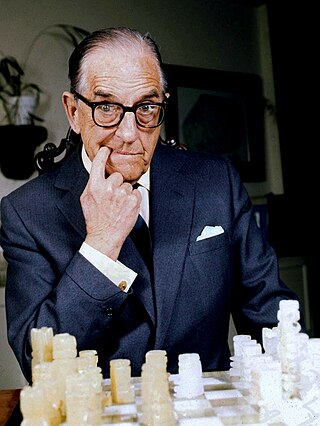
Stanley Augustus Holloway was an English actor, comedian, singer and monologist. He was famous for his comic and character roles on stage and screen, especially that of Alfred P. Doolittle in My Fair Lady. He was also renowned for his comic monologues and songs, which he performed and recorded throughout most of his 70-year career.

The Singing Fool is a 1928 American musical drama part-talkie motion picture directed by Lloyd Bacon which was released by Warner Bros. The film stars Al Jolson and is a follow-up to his previous film, The Jazz Singer. It is credited with helping to cement the popularity of American films of both sound and the musical genre.
Bennett Cohen was an American screenwriter and director. He wrote for more than 180 films between 1915 and 1953. He also directed 17 films between 1925 and 1934. He was born in Trinidad, Colorado and died in Los Angeles, California.
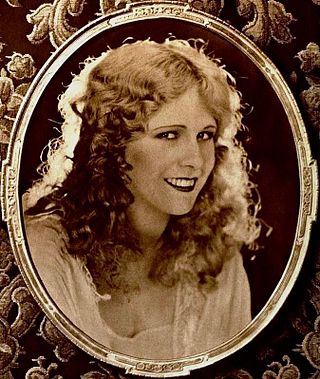
Betty Francisco was an American silent-film actress, appearing primarily in supporting roles. Her sisters Evelyn and Margaret were also actresses.
The Co-Optimists is a stage variety revue that opened in London on 27 June 1921. The show was devised by Davy Burnaby. The piece was a co-operative venture by what The Times called "a group of well-known musical comedy and variety artists" presenting "an all-star 'pierrot' entertainment in the West-end." It opened at the small Royalty Theatre and soon transferred to the much larger Palace Theatre. The show ran initially for 500 performances; it was completely rewritten and revived at regular intervals to keep it fresh. The final edition, beginning in November 1926 and closing on 4 August 1927, was the 13th version.
Phonofilm is an optical sound-on-film system developed by inventors Lee de Forest and Theodore Case in the early 1920s.

Sidney Arnold Franklin was an American film director and producer. Franklin, like William C. deMille, specialized in adapting literary works or Broadway stage plays.
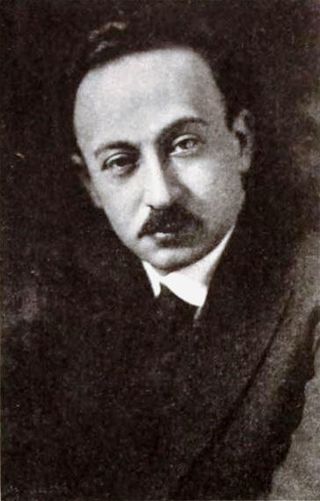
Hugo Riesenfeld was an Austrian-American composer. As a film director, he began to write his own orchestral compositions for silent films in 1917, and co-created modern production techniques where film scoring serves an integral part of the action. Riesenfeld composed about 100 film scores in his career.

The musical short can be traced back to the earliest days of sound films.
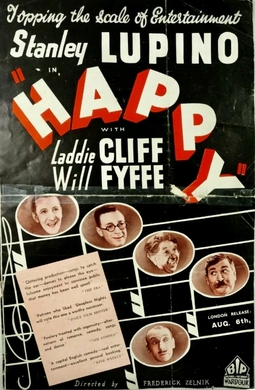
Happy is a 1933 British musical film directed by Frederic Zelnik, starring Stanley Lupino, Dorothy Hyson, Laddie Cliff, and Will Fyffe. The plot concerns a band leader who pretends to be a millionaire in Paris.

Squibs is a 1935 British musical romantic comedy film directed by Henry Edwards and starring Betty Balfour, Gordon Harker and Stanley Holloway.
Sleeping Car is a 1933 British romantic comedy film directed by Anatole Litvak and starring Madeleine Carroll, Ivor Novello and Laddie Cliff.

Feather Your Nest is a 1937 British musical comedy film directed by William Beaudine and starring George Formby, Polly Ward and Enid Stamp-Taylor.
Song of the Forge is a 1937 British musical film directed by Henry Edwards and starring Stanley Holloway, Lawrence Grossmith and Eleanor Fayre. The screenplay concerns an elderly blacksmith who refuses assistance from his wealthy son in spite of his own poverty.

The English comic singer, monologist and actor Stanley Holloway (1890–1982), started his performing career in 1910. He starred in English seaside towns such as Clacton-on-Sea and Walton-on-the-Naze, primarily in concert party and variety shows. The first of these, The White Coons Show, was soon followed by the more prestigious Nicely, Thanks! in 1913. From here, he went on to co-star in The Co-Optimists, a variety show which brought him to wider audience attention. After the First World War, he returned to London and found success in the West End musicals at the Winter Garden Theatre, including Kissing Time (1919), followed in 1920 by A Night Out. The Co-Optimists continued until 1927, and he then appeared in Hit the Deck, a comic musical which appeared both in London and on Broadway. Reporting for The Manchester Guardian, the theatre critic Ivor Brown praised Holloway for a singing style "which coaxes the ear rather than clubbing the head."
Davy Crockett is a 1910 American silent Western film starring Hobart Bosworth as Davy Crockett, with Betty Harte and Tom Santschi. The film was directed by Francis Boggs and distributed by Selig Polyscope Co. It was commercially released in the United States. With a storyline similar to the 1909 Davy Crockett – In Hearts United, this fictional account of Crockett's life has him rescuing his lady love from marrying his rival. The movie ends with Crockett and his girlfriend riding off together.

Laddie Cliff was a British dancer, choreographer, actor, producer, writer, and director of comedy, musical theatre and film. He was noted for his versatility. His many London West End theatre appearances and films included a long association with fellow thespian Stanley Lupino. He was married to the actress Phyllis Monkman. He died in 1937 after a period of ill health.
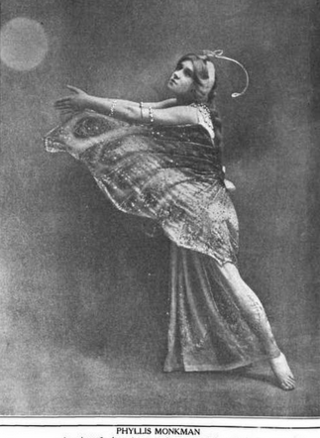
Phyllis Monkman was a British stage and film actress. She was married to the entertainer Laddie Cliff.
On the Air is a 1934 British musical film directed by Herbert Smith and starring Davy Burnaby, Reginald Purdell and Betty Astell. It was made by British Lion at Beaconsfield Studios. It was one of a number of revue films made by the company during the decade.